The Influential Pulp Career of Francis Stevens
/ Over the course of writing this column for Kirkus Reviews, I've found that the early women authors writing in the genre were some of the most influential, producing some incredible stories over their careers. I've looked at quite a few who were incredibly influential: Margaret St. Clair, Judith Merrill, Leigh Brackett, C.L. Moore, and Mary Shelley. This week, we finally get to the woman who was considered one of the very first professionals in the pulp field: Gertrude Barrows Bennett, who wrote under the name Francis Stevens. She only wrote for a couple of years, but proved to be an incredible influence on the authors who followed her.
Over the course of writing this column for Kirkus Reviews, I've found that the early women authors writing in the genre were some of the most influential, producing some incredible stories over their careers. I've looked at quite a few who were incredibly influential: Margaret St. Clair, Judith Merrill, Leigh Brackett, C.L. Moore, and Mary Shelley. This week, we finally get to the woman who was considered one of the very first professionals in the pulp field: Gertrude Barrows Bennett, who wrote under the name Francis Stevens. She only wrote for a couple of years, but proved to be an incredible influence on the authors who followed her.
Go read The Influential Pulp Career of Francis Stevens over on Kirkus Reviews.
Sources:
Partners in Wonder: Women and the Birth of Science Fiction, 1926-1965, Eric Leif Davin - Stevens' active publishing period falls before this time, but she does get some good mentions throughout this book, which poists that discrimination in the SF world wasn't entirely accurate on an industry level, which runs counter to current perceptions of SF's roots. It's an interesting theory, one which he breaks down quite a bit. Under the Moons of Mars: A History and Anthology of the "Science Romance in the Munsey Magazines, 1912-1920, Sam Moskowitz - This is a fantastic hybrid of anthology and history. Moskowitz is to be handled with care, but in this instance, he seems to be mostly accurate (he does continue the idea that Augusust Swift was H.P. Lovecraft - he wasn't), but presents a nice history of the Munsey Magazines along with some solid biographical information on Stevens. American Fantastic Tales: Terror and the Uncanny from Poe to the Pulps, edited by Peter Straub - Like all other Library of America volumes, this contains a short, updated biography, alongside her story Unseen-Unfeared. The Nightmare, and Other Tales of Dark Fantasy, edited by Francis Stevens, Gary Hoppenstand - You can read the introduction here, and it's an interesting read with some good biographical points about Bennett/Stevens and her life that don't show up in many other places. Stevens, Francis, SF Encyclopedia - There's a short entry on Stevens here, with some notes about her impact.


 I'm very happy to announce that I've sold the rights to a book on SF History to British publisher Jurassic London! Since April 2012, I've been
I'm very happy to announce that I've sold the rights to a book on SF History to British publisher Jurassic London! Since April 2012, I've been 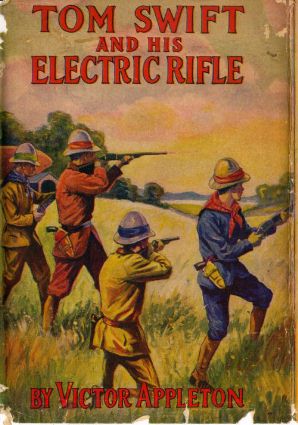 I never read the Tom Swift novels as a kid; I was always more obsessed with the Hardy Boys series. Over the years, I've read bits and pieces about Edward Stratemeyer, the man who was behind the long-running book series, as well as those of Nancy Drew, the Bobbsey Twins (a favorite of my mother's), The Rover Boys and Tom Swift. He conceived of a character, put together a formula, and had a freelancer ghost write the novel before editing it. The process has always fascinated me, but when it came to looking into his background, an entire segment of early science fiction comes to light: the Dime Store novels, which created entire subgenres in their own right. More than that, they carried with them some real kernels of thematic material which have since propagated far into the future, which surprised and delighted me.
I never read the Tom Swift novels as a kid; I was always more obsessed with the Hardy Boys series. Over the years, I've read bits and pieces about Edward Stratemeyer, the man who was behind the long-running book series, as well as those of Nancy Drew, the Bobbsey Twins (a favorite of my mother's), The Rover Boys and Tom Swift. He conceived of a character, put together a formula, and had a freelancer ghost write the novel before editing it. The process has always fascinated me, but when it came to looking into his background, an entire segment of early science fiction comes to light: the Dime Store novels, which created entire subgenres in their own right. More than that, they carried with them some real kernels of thematic material which have since propagated far into the future, which surprised and delighted me.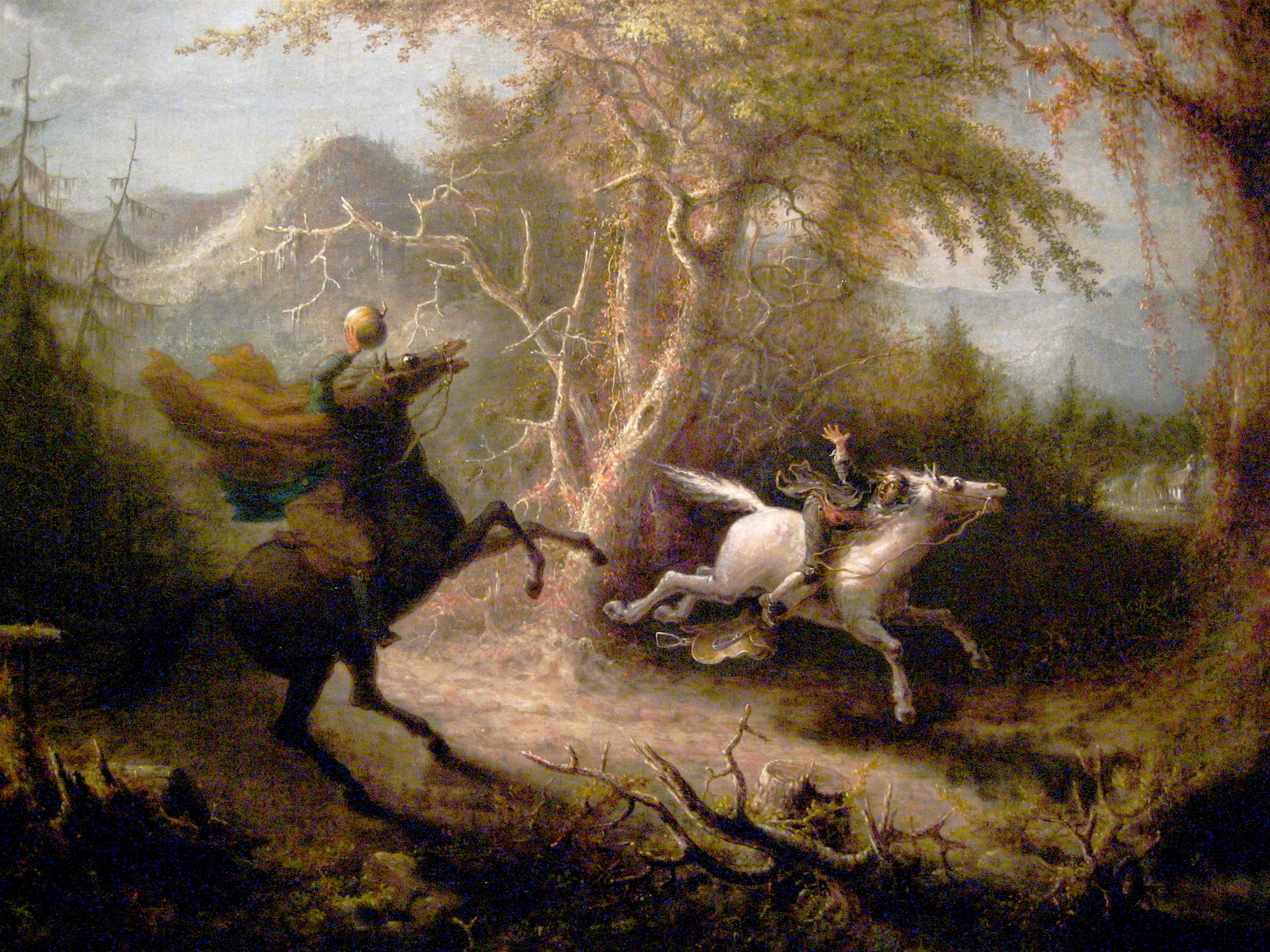
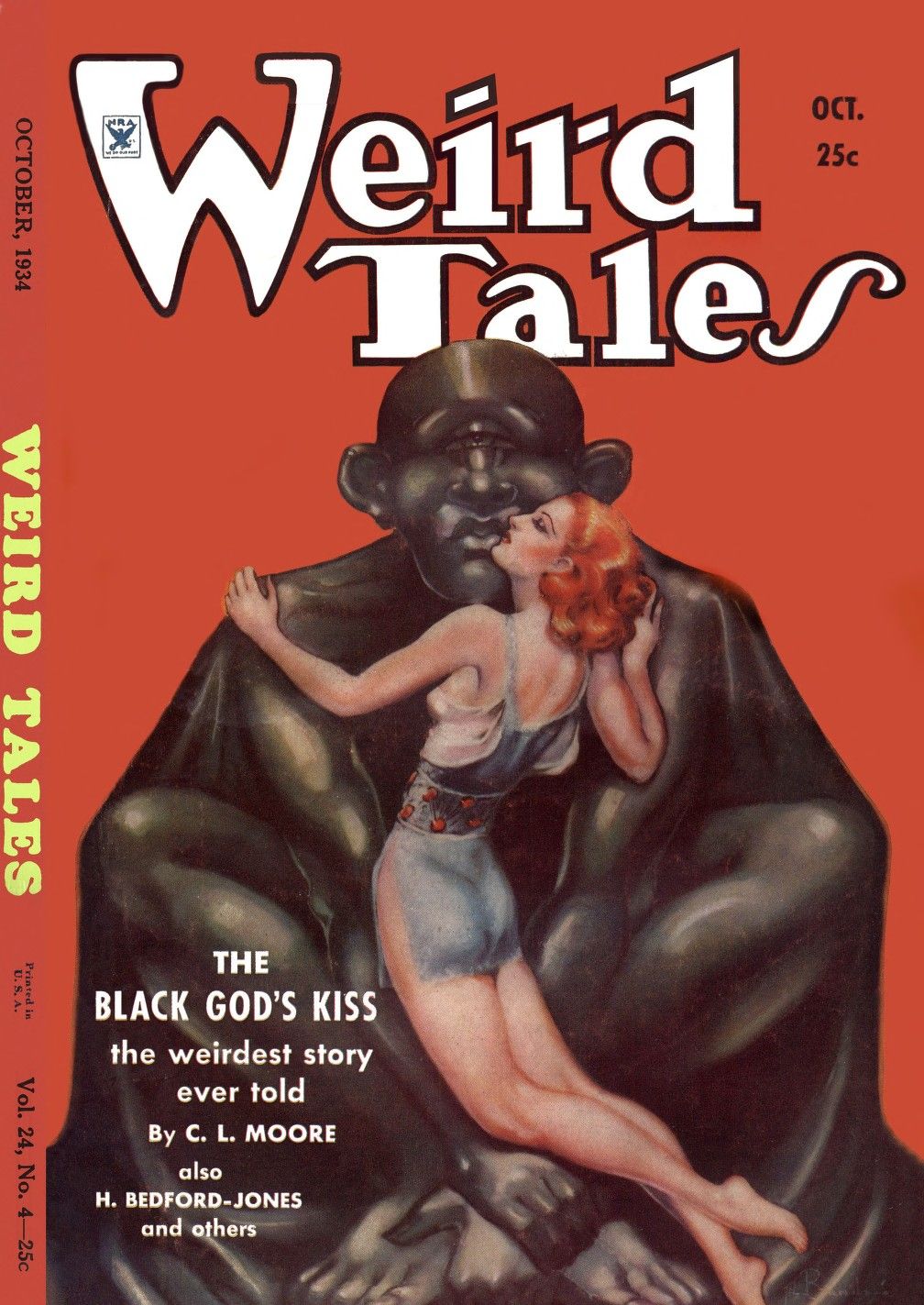 When the fall arrives, I get into the mood for darker fiction, particularly H.P. Lovecraft. I've written about Lovecraft before, but I didn't quite realize how important the magazine was, despite its general flaws in quality, to the genre. Authors such as C.L. Moore, and quite a few others passed through its pages, and it's clear that it's a publication that's just as important as Astounding or Amazing Stories.
When the fall arrives, I get into the mood for darker fiction, particularly H.P. Lovecraft. I've written about Lovecraft before, but I didn't quite realize how important the magazine was, despite its general flaws in quality, to the genre. Authors such as C.L. Moore, and quite a few others passed through its pages, and it's clear that it's a publication that's just as important as Astounding or Amazing Stories. It's fall, and I've been once again shifting from the usual topic of science fiction to horror and fantasy. Last year, I wrote about H.P. Lovecraft, and in my last column, I wrote about Robert E. Howard. As I've researched these guys, I continually came up with a common name: Lord Dunsany, and I've been looking to write about him and his works.
It's fall, and I've been once again shifting from the usual topic of science fiction to horror and fantasy. Last year, I wrote about H.P. Lovecraft, and in my last column, I wrote about Robert E. Howard. As I've researched these guys, I continually came up with a common name: Lord Dunsany, and I've been looking to write about him and his works. Back in April, I had been doing some reading on the Lovecraft Circle, and came across an interesting fact about one of the authors, Robert Howard. At the age of 30, he killed himself upon learning that his mother was in a coma and would never wake up again. It was interesting, because before that time, he had created a couple of well known characters, namely, Conan the Conqueror one of the pulp era's defining heroes. A couple of weeks ago, I came across one of his more Lovecraftian stories, The Black Stone, and was reminded of his short life and influence. Beyond just Conan, he helped to influence an entire subgenre of fantasy, Sword and Sorcery.
Back in April, I had been doing some reading on the Lovecraft Circle, and came across an interesting fact about one of the authors, Robert Howard. At the age of 30, he killed himself upon learning that his mother was in a coma and would never wake up again. It was interesting, because before that time, he had created a couple of well known characters, namely, Conan the Conqueror one of the pulp era's defining heroes. A couple of weeks ago, I came across one of his more Lovecraftian stories, The Black Stone, and was reminded of his short life and influence. Beyond just Conan, he helped to influence an entire subgenre of fantasy, Sword and Sorcery. I make it no secret that I really enjoy Military Science Fiction. It's been on my mind lately, as I'm in the middle of preparing an anthology of Military SF stories for launch. When I was in college, I studied History and eventually earned my master's in Military History, and I've found that the sub genre has been an interesting place to read and rant about.
I make it no secret that I really enjoy Military Science Fiction. It's been on my mind lately, as I'm in the middle of preparing an anthology of Military SF stories for launch. When I was in college, I studied History and eventually earned my master's in Military History, and I've found that the sub genre has been an interesting place to read and rant about. Earlier this week, Grandmaster Frederik Pohl passed away at the age of 93. He's the last of a major generation in the genre, and was a legendary contributor to science fiction from every possible direction. It's a great loss for Science Fiction.
Earlier this week, Grandmaster Frederik Pohl passed away at the age of 93. He's the last of a major generation in the genre, and was a legendary contributor to science fiction from every possible direction. It's a great loss for Science Fiction.

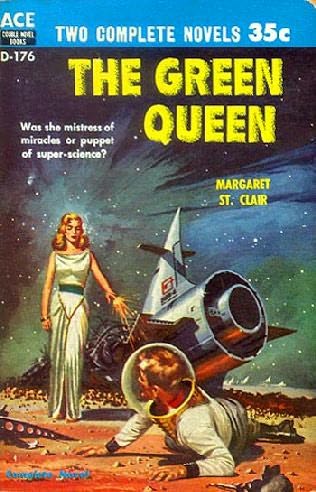 Science Fiction has a reputation as being the boy's club, where all the major names, such as Asimov, Heinlein and Clarke get a majority of the credit for the development and direction of the genre as a literary movement. It's unfortunate, because that's not the full story, and it means that there's a lot of other authors out there that really don't get the credit that they deserve.
Science Fiction has a reputation as being the boy's club, where all the major names, such as Asimov, Heinlein and Clarke get a majority of the credit for the development and direction of the genre as a literary movement. It's unfortunate, because that's not the full story, and it means that there's a lot of other authors out there that really don't get the credit that they deserve.
 Lists are hard to do well. There's always too many entries, too much to say, and too short a space. For a while now, I've been wanting to do a survey of some of the notable dystopian stories, and following the news of Edward Snowden's leak of classified NSA program information, it seems like a good time to take a look at some of the notable works where government overreaches. It's fitting, as 1984 has enjoyed considerable success in the last couple of weeks.
Lists are hard to do well. There's always too many entries, too much to say, and too short a space. For a while now, I've been wanting to do a survey of some of the notable dystopian stories, and following the news of Edward Snowden's leak of classified NSA program information, it seems like a good time to take a look at some of the notable works where government overreaches. It's fitting, as 1984 has enjoyed considerable success in the last couple of weeks.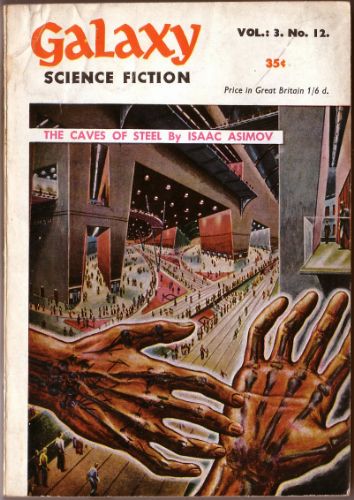 One of the things that I've really loved about this column is getting a sense of how connected everyone was. Truly, everyone seemed to know one another, even as small groups formed around certain editors. A case in point, over the last couple of columns, I've been looking at the Golden Age of SF, which is generally regarded as beginning with John W. Campbell Jr.'s rein at Astounding. Campbell's star was bright and enduring, but it lost its innovative edge. H.L. Gold, I think, deserves more attention for his role during the Golden Age, as his magazine Galaxy Science Fiction provided some of the genre's most enduring classics.
One of the things that I've really loved about this column is getting a sense of how connected everyone was. Truly, everyone seemed to know one another, even as small groups formed around certain editors. A case in point, over the last couple of columns, I've been looking at the Golden Age of SF, which is generally regarded as beginning with John W. Campbell Jr.'s rein at Astounding. Campbell's star was bright and enduring, but it lost its innovative edge. H.L. Gold, I think, deserves more attention for his role during the Golden Age, as his magazine Galaxy Science Fiction provided some of the genre's most enduring classics. Earlier this week, SF Grandmaster Jack Vance passed away at the age of 96. His writing career lasted over six decades, and he's known for his fantastic worldbuilding in addition to his enormous volume of works.
Earlier this week, SF Grandmaster Jack Vance passed away at the age of 96. His writing career lasted over six decades, and he's known for his fantastic worldbuilding in addition to his enormous volume of works.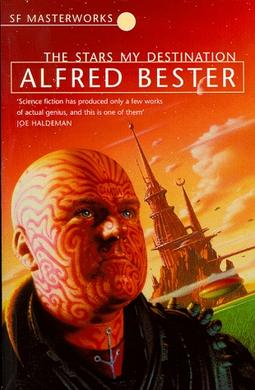 Last year, I picked up and read The Stars My Destination for the first time. It's an astonishing book, one that I alternatively wish that I'd read it earlier, and that I'm glad that I read it now, with the capabilities to really get how important of a book it is. The book was used in a science fiction class that I sat in on this past semester here at Norwich, and it was interesting to see the student's reactions to it.
Last year, I picked up and read The Stars My Destination for the first time. It's an astonishing book, one that I alternatively wish that I'd read it earlier, and that I'm glad that I read it now, with the capabilities to really get how important of a book it is. The book was used in a science fiction class that I sat in on this past semester here at Norwich, and it was interesting to see the student's reactions to it.
 One of the things that I've found distinctly interesting about the Golden Age of SF is how the authors shape the field that they're in, but also how much one can extrapolate a larger picture out of an author's life. An excellent example of this is Judith Merril, through whom one can find an excellent viewpoint of the shifts in publishing, as well as a number of similarly-high-profiled authors writing at the same time. This is the first of probably a couple of posts about Merril - her career as a whole will likely require more space. Indeed, the Futurians themselves warrant a couple of posts of their own.
One of the things that I've found distinctly interesting about the Golden Age of SF is how the authors shape the field that they're in, but also how much one can extrapolate a larger picture out of an author's life. An excellent example of this is Judith Merril, through whom one can find an excellent viewpoint of the shifts in publishing, as well as a number of similarly-high-profiled authors writing at the same time. This is the first of probably a couple of posts about Merril - her career as a whole will likely require more space. Indeed, the Futurians themselves warrant a couple of posts of their own.